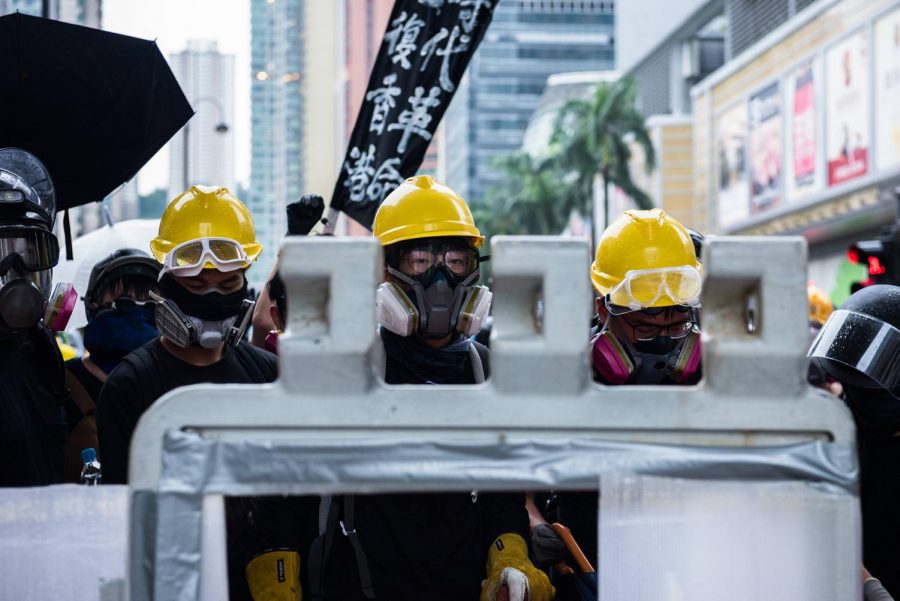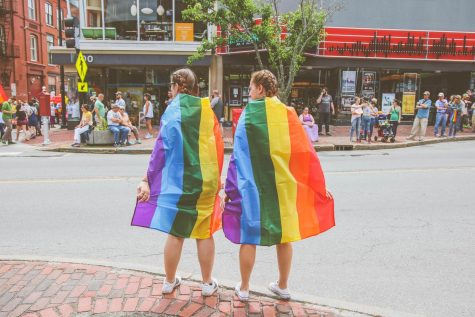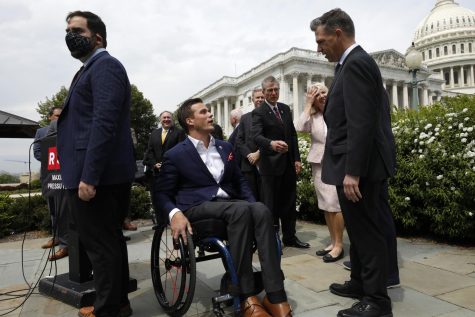A brief debriefing of the Hong Kong riots and why it matters
Aidan Marzo/SOPA Images
Protesters gaze at riot police from behind a barricade during a demonstration on Sunday, Aug. 25, 2019 in Hong Kong.
This summer, the riots in Hong Kong swept through the news in a flurry of shock that gripped the eyes of the world. We have all seen the now infamous photos of the Hong Kong airport drowning in a sea of black t-shirts, their chosen color of solidarity.
The world paused to listen to the unanimous, powerful voice of outraged Hong Kong civilians. Many of the media photos of the riots show signs written in English, which seemed like an appeal to us, the Westerners, to take heed of their story and to respond.
So why are the people of Hong Kong rioting? This is a question many of us asked right away, as such a momentous display of outrage and solidarity, powerful enough to halt the use of an international airport, has been seen few times in the world.
To understand it, we must first consider the history of Hong Kong. It is a city that has always been unique in that it is self-governed, with its own private, democratic government and an economy separate from China. According to this CNN article, it is a city that thrives under a “one country, two systems” policy.
Hong Kong cooperates with China and has thrived through this system in a way that gives the people of Hong Kong their own governing power, while also allowing them to be a part of the country of China.
However, as the years progressed from the initial birth of this government, many Hongkongers claim the grip of Beijing is slowly but surely sweeping into their government and forcing them to relinquish their rights, which they hold very dear.
The riots are a push against legislation many Pro-China politicians are writing and presenting to the government of Hong Kong.
This stirs a reaction not only in the citizens this law affects, but also in us, survivors of a 230-year democratic government who believe in unalienable rights and the right to defend them.
The riots in Hong Kong are important because they remind us of the power of assertion and the importance of having a voice that is heard in the first place.
Watching these stories and educating ourselves about them enables us to be better citizens of the world in which we all inhabit.
Even if legislation is passed in Hong Kong that seriously infringes upon the rights of the citizens, the whole world now has their eyes on the city and is passing judgement upon it.
This appeal to the world, the consequent strong reaction it has conjured and the effect it will likely have on Hong Kong provide a glowing example of the power of connection, solidarity and voice. It is a display of how, even in the midst of the greatest and a seemingly helpless suppression, there is always hope.









